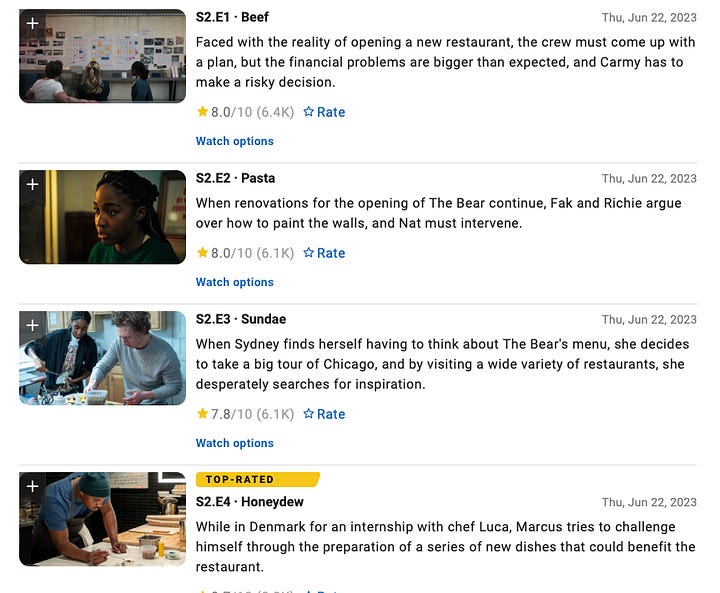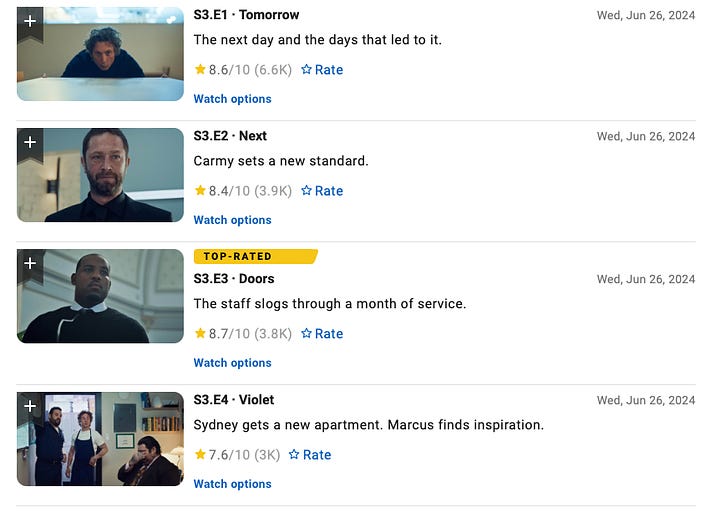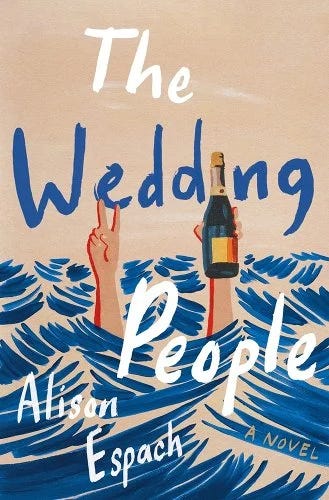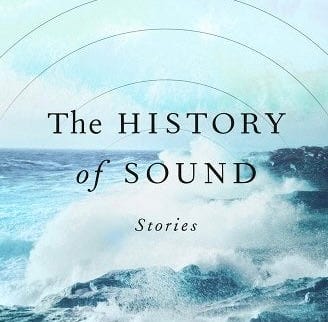When I was teaching introductory fiction writing at the college level, every semester, I braced myself for a lot of death.
Students killing off their characters was so common because what is more dramatic than death? Often, the deaths would happen in the final paragraph or even sentence, an honest attempt at delivering an emotional impact to the reader.
It rarely worked for a number of different reasons, and often created a core illogic in the story, where a character has been narrating events in the first-person past tense is killed in the end, an act which would leave them unable to tell the story unless they are a ghost, which they were not.
These sorts of stories provided great opportunities for discussions about the different narrative mechanisms that keep audiences invested in a story. There’s a variety of ways to think and talk about these things, but my preferred breakdown was helping students see the difference between suspense, surprise, and drama.
Suspense is experiencing the narrative in anticipation of some event happening or an open question resolving.
Surprise is something that well…surprises, an unseen event that, in hindsight, still makes sense and fits within the context of the narrative. Twist endings rely on building suspense and then paying off that suspense with significant surprise.
Drama is the byproduct of suspense and surprise, the stuff we actually experience as readers/viewers that we get invested in, stoking a desire to continue to see how the story unfolds. I’d ask students to consider “What’s at stake?” as a way of gauging how much drama was present, and “How much do you care?” as a way of gauging whether or not that drama was connecting to the audience.
The last paragraph deaths were often an attempt at creating drama, but they fell flat because they rarely came coupled with suspense, and given that they signaled the end of the story there was no additional opportunity to build drama. Death is the cessation of drama. One of my favorite suggestions to students if they were interested in revision was to start their stories with the deaths and see what happened in terms of the storytelling. Almost invariably, it led to much more drama in the revised stories, as the remaining characters were forced to live in the aftermath of that death.
Finding the right mix of these elements is not an easy task. Even experts with dozens of Emmy nominations under their belts can get it wrong, which brings me to a subject that has been top-of-mind for me this week.
Season 3 of The Bear is not good.
I offer this opinion in sorrow because I was very enamored with season one of the show, and somewhat less enamored, but still quite enamored with season two of the show, and had been looking forward to watching season three.
If Mrs. Biblioracle was not a completist about these things I would have abandoned the season after the second episode.
The problem, as I see it, is a total mismatch between the elements of suspense, surprise, and drama.
(Spoilers coming for those who haven’t seen the first two seasons of The Bear.)
Drama requires narrative fuel, a catalyst, and for the first two seasons - particularly the first season - the show was fueled by the death of Mikey, and Carmy’s return to Chicago to pick up the pieces in the aftermath of his brother’s suicide. The show mixed the drama of grief, the clashes between Carmy and his family (Natalie, Cousin Richie, etc…), the direction of the restaurant, and a mystery surrounding some missing money. Lots of energy to work with here.
Season two injected the quest to open a fine dining restaurant, a story catalyzed by the finding of the missing money, which closed season one with a surprise. Season two is structured as a series of vision quests as each individual who will have a role to play in the restaurant goes forth to try to become the person who they must be in order for the restaurant to have success. Marcus, the budding pastry chef, is sent abroad to learn his trade. Cousin Richie goes to experience service at a fine dining restaurant run by Chef Terry (Olivia Coleman), where Carmy previously trained, and while there is transformed from a haphazard agent of chaos to a highly disciplined, exacting, budding master of front-of-house restaurant operations.
The central relationship between Carmy and Sidney develops dramatic tension around their joint quest to deliver an original cuisine, and whether or not Carmy will be able to treat Sidney as the partner he knows he needs, but doesn’t know how to relate to.
There’s a bunch of little dramas along the way around the restaurant renovations, like passing a mandatory fire suppression test. Carmy has a budding relationship with an old friend, Claire. Sidney wrestles over her relationship with her father, trying to assuage his concerns that she may be courting another professional failure. There is one flashback episode to a Berzatto family Christmas where we gain a fuller appreciation of how messed up these poor people are, an episode which effectively increases the drama around the opening of the restaurant because we understand how much is riding on Carmy, et al., actually experiencing success.
The season climaxes with a successful first service, but one where Carmy is locked in the walk-in refrigerator for the entire period from where he inadvertently breaks up with Claire.
I would say that there’s possible season 3 spoilers coming except that nothing dramatic happens in season 3.
It’s important to recognize that for shows to be dramatically compelling we don’t need to deliver surprise after surprise. The ultimate trajectory of the characters’ fates in a show like Bridgerton are known from the very beginning, and the drama is generated by seeing them navigate the obstacles standing in the way of the assured resolution.
How are they going to get out of this pickle? Is a different question from: What’s going to happen? Some narratives work with both questions, some with one, but The Bear in season three tries to see what happens if you work with neither.
I’m not really exaggerating. The main questions at the end of season 2, which should provide the fuel for what comes next, are: 1. Will the restaurant be successful as a creative enterprise? 2. Will the restaurant be successful as a business enterprise? 3. Will Carmy reconcile with Claire? 4. Will each individual find fulfillment and success in their role at the restaurant? 5. Will Natalie have her baby?
Only the final question is paid off because it essentially has to. They can’t keep that bun in the oven indefinitely.
Not only do none of the other questions get paid off, much of the season is spent going backwards through flashback and montage, techniques meant to map the internal turmoil of the characters, but which put us in a season long dramatic cul-de-sac. There’s very little drama, limited suspense, and no surprise.
We are teased about a forthcoming restaurant review in the Chicago Tribune as a make or break moment for the restaurant for multiple episodes, only to have the season end without a resolution. Carmy not only does not explore a rapprochement with Claire, he doesn’t even speak to her. The penultimate episode, which chronologically is months following the restaurant’s opening, is about Carmy still thinking about if he should apologize to her.
Story elements which should be a scene at most are stretched into entire episodes, as when a character called “Computer” is brought in to discuss the financial state of the restaurant, offering insights that hardly take anyone known as “Computer” to articulate.
I’m actually getting more and more irritated as I write. I think I understand what the show was going for, but the failure of narrative structure around the elements of suspense, drama, and surprise is so profound, it’s shocking. You can see moves to develop the themes around how we’re shaped by our past and the challenge of overcoming our environment and our influences. These can and should be dramatic, but without anything in the present to match to that past, they’re simply inert, a big old, “who cares?”
Another image I sometimes suggested to students was to imagine that at the end of their story, there’s a giant magnet that’s meant to pull the reader towards the conclusion. They needed to be aware of whether or not they were putting enough material in that magnet to make it powerful enough to get the audience across the distance they needed to travel. Season three of The Bear has not nearly enough in the magnet, and even as we approach what should be the end, the magnet is moved further away, into the next season.
The problem leaps off the page when you compare the capsule descriptions of the episodes from IMDB. On the left is season two - all kinds of stuff popping off, episode to episode. On the right is season three, with nothing of consequence happening.


Don’t get me wrong, it’s not like the show is a total disaster. The actors are great, often creating effective mini-scenes out of very little. There’s worse things to do than stare into Jeremy Allen White’s Paul Newman-blue eyes as he mournfully ponders his life before throwing yet another failed dish (by his standards) into the garbage. The Gen X, dad rock soundtrack is directly in my wheelhouse. I can appreciate the creative challenge of trying to step back and explore the territory mapped out by the first two seasons, but this is television, man! It’s seven-plus hours of wheel spinning across 10 episodes.
I’m glad I got that off my chest. Feel free to disagree in the comments. Now, let’s talk about how political coverage gets so screwed up because of the lure of suspense, surprise, and drama.
In contrast to the lousy plotting of season three of The Bear, I want to give a shoutout to the excellent mix of drama, suspense, and surprise in Alison Espach’s new novel, The Wedding People, which was the subject of my column at the Chicago Tribune today.
Espach opens the novel with a central question, will Phoebe, the main character, end her own life by swallowing her recently deceased cat’s fish-flavored pain pills while ensconced in the most expensive suite at a coastal Newport, Rhode Island inn where every other room is being used for a lavish six-day wedding event? The question creates both drama and suspense. When that question pays off (rather quickly), other questions have already been put in motion that keep us reading, with more questions arising the whole way.
Throughout the novel, the broad strokes of what is going to happen are always in view, but the specifics of how those things happen are often genuinely surprising. It’s a great illustration that suspense is not just in the absolute outcome of events, but the particulars of how those events are conveyed to the audience. I could go on longer, as I did in this space for Espach’s previous novel, Note on Your Sudden Disappearance, but the book doesn’t come out until Tuesday, and also, I’ll have a bonus Q&A with Alison Espach coming up soon in the newsletter.
I was grateful to have the example of The Wedding People in my head for how suspense, surprise, and drama can be put to good work while I was gnashing my teeth over my disappointment with The Bear.
What narratives come to mind for you that juggle these story elements particularly well?
Links
Here is another link to my review of Alison Espach’s The Wedding People.
In other John Warner creates content news, at Inside Higher Ed I wrote about how I think it is a mistake for higher ed institutions to wait out the “limbo” of the current presidential election. It’s always limbo somewhere.
Hearkening back to that New York Times list of the Top 100 books of the 21st century,
rectifies what looks like some oversights with his top 10 list of “21st century books with pictures.”“Why Don’t Straight Men Read Novels?” I’m straight and a man and I read novels, but apparently that makes me something of an outlier.
At Granta
makes a case against the relatively new sociological, and sometimes data-driven analyses of literature. Make sure to read to the stirring conclusion.This week from
a piece by Jeff King that fits squarely in the category of “it’s funny because it’s true.” “Pre-Order Book Sales Are Key.”Speaking of which you can pre-order More Than Words: How to Think About Writing in the Age of AI at your preferred book retailer. If only 10% of the readers of this newsletter pre-ordered the book, the publisher would be very impressed and possibly think about putting more resources behind its success.
ICYMI, I had a bonus post this past week in the form of a Q&A with Ben Shattuck about his new story collection, The History of Sound.
Recommendations
1. Middlemarch by George Eliot
2. The Playbook by James Shapiro
3. The Home Child by Liz Berry
4. Brian by Jeremy Cooper
5. Service by Sarah Gilmartin
Julian G. - Dublin, Ireland.
I recently read Joseph O’Neil’s Godwin, and while I quite enjoyed it, I didn’t find myself with anything interesting to say about it in a review, but my mind keeps coming back to it, which makes me realize the book really did work well for me. I think it might be a good fit for Julian too.
1. All The Strange Hours by Loren Eiseley
2. 2666 by Roberto Bolaño
3. The Death of a Beekeeper by Lars Gustafsson
4. Six Memos for the Next Millennium by Italo Calvino
5. Silence Once Begun by Jesse Ball
Cam V. - Los Angeles, CA
Cam is going to need some unconventional stuff in his choice. That brings to mind one of my favorite books of the last ten or so years, the criminally under appreciated, A Brave Man Seven Storeys Tall by Will Chancellor.1
I had originally planned to do some analysis of how U.S. politics are covered using the surprise, suspense, drama lens as a way to show how much of our political news is just totally ginned up B.S. meant to stoke fake drama and phony suspense, but it would take more space to truly lay out and it started to depress me.
But as an object example over the next 7-10 days look at the coverage of Kamala Harris’s choice of running mate. There is literally nothing of substance to report on beyond candidates who are confirmed as being vetted, and yet there will be innumerable stories about who is “favored” or “in the lead.” But there is no race. There is no process to track or report on beyond speculation. I would argue, it’s truly not worth even thinking about, but it’s going to be one of the leading subjects of the news for the next little while.
Alrighty folks, that’s all for Sunday, but that Q&A with Alison Espach should be available soon, so look for that.
All books (with the occasional exception) linked throughout the newsletter go to The Biblioracle Recommends bookstore at Bookshop.org. Affiliate proceeds, plus a personal matching donation of my own, go to Chicago’s Open Books and an additional reading/writing/literacy nonprofit to be determined. We are very much stuck on $79.00 for this year’s affiliate income which makes me think that running an affiliate program is probably not a long term benefit, but we’ll stick to it for the rest of the year, and revaluate anon.






This is oft-discussed with television shows, especially in the "Prestige Era," but I feel like this might be the best example we've seen of some time of what happens when a three-season show gets stretched to four seasons. Season 3 had all the makings of a "treading water" season that, from what I've read, was stretched out for $$$ despite the story being originally intended to end here.
Yes! It mostly felt like filler.
One thing I'll add... They also went in too hard on the worship of famous chefs. That dinner toward the end with all of the real-life celebrity chefs (most of whom I did not recognize other than to understand that they must be chefs at fancy restaurants) just reminded me that, though I like food, I don't really care about chefs at fancy restaurants I will never eat at. It disengaged me from the story because, while I cared about the characters, I spent time thinking about how little I cared about what they cared about, if that makes sense.